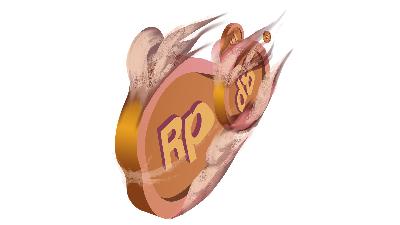Controversial Sea Sand Exploitation Concessions
Extraction of sea sand for reclamation projects and for export is happening on an increasingly large scale. The criteria for sedimentation areas are not clear.
Tempo
April 1, 2024

THE issuing of two regulations concerning the extraction of sea sand gives an even clearer impression of the character of the Joko Widodo regime, which favors protecting the business interests of a small number of tycoons over environmental conservation. Ignoring the inputs from academics and environmental activists, the Maritime Affairs and Fisheries Ministry is insisting on continuing with the policy that could once again open the door to exports of sea sand.
The provisions for clearing marine sedimentation are contained in Maritime Affairs and Fisheries Ministry Regulation No. 33/2023 and Maritime Affairs and Fisheries Minister Decree No. 16/2024. Both are based on Government Regulation No. 26/2023, which is based on a recommendation from the Legal Reform Acceleration Team established by the Coordinating Ministry for Political, Legal and Security Affairs. Both regulations need to be revoked, because of the risk of conflict of interests and its negative impacts on the environment.
The cliché justification of supporting development and the economy, which is always used by the government when it issues policies on the exploitation of natural resources, has also been cited by the government in the issuing of the regulations on the exploitation of marine sediment. But this policy will only benefit very rich tycoons.
Through these regulations, the Maritime Affairs and Fisheries Ministry has set out criteria for businesses to be able to extract marine sediments such as sand. These criteria, among other things, relate to financial capacity and the requirement for prospective sea sand extraction contractors to pay to the state 5 percent of the value all the sediment they will exploit. If companies are unable to pay this fee within the time frame given, their permits to exploit sea sand will be revoked.
By setting these conditions, the government is without shame, once again showing that it is taking sides with conglomerates instead of with the people. During the period for the registration of applications for permits to remove and exploit marine sedimentation, 22 companies expressed an interest. These prospective extractors of sea sand will have to partner with companies that need sediment, such as contractors planning to carry out reclamation projects.
It is easy to guess that the permits for these reclamation projects are already in the hands of the construction companies currently building artificial islands in the sea north of Jakarta. Once there is a regulation about the exploitation of marine sediment, all these companies have to do is find operating partners and suppliers of sand. A number of these reclaimed islands are related to the project to construct Pantai Indah Kapuk (PIK) 2, which together with the elite Bumi Serpong Damai housing complex and 12 other projects have just been named as national strategic projects (PSN).
The inclusion of PIK 2 on the list of PSNs, together with the support from the policy to extract sea sand, is a strong indication that Jokowi is returning favors to tycoons. This project is owned by property giant Grup Agung Sedayu, which is part of the Nusantara Consortium that is helping to fund the construction of the Nusantara Capital City (IKN).
There is another problem with the designation of seven priority locations for the extraction of marine sedimentation. The policy, claimed to aim at fulfilling the needs of national infrastructure development projects, instead overlaps with sand mining activities that have been ongoing using production and operation mining permits (IUP-OP).
There are even some locations designated by the Maritime Affairs and Fisheries Ministry that are overlapping with IUP-OP areas designated by the Energy and Mineral Resources Ministry. It is easy to imagine the massive scale of extraction of sea sand that will take place.
At the end of the Jokowi administration, damage to maritime and coastal ecosystems is only a matter of time.

